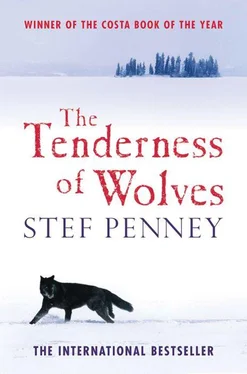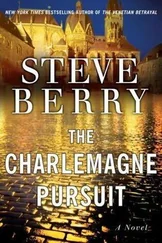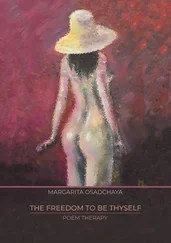Mackinley has had several terse discussions with Donald on the devious nature of free traders, and the necessity of binding the natives to the Company with liquor, guns and food. That was what brought the blood to Donald’s cheeks–Maria’s accusation was quite accurate. But it is no worse than the Yankees do, for heaven’s sake. He should have told Maria about the Indian village that depends on the Fort for food and protection. He should have told her about Jacob’s wife and the two little girls with trusting eyes, but, as usual, he did not think of these things at the right moment.
It was during one of these conversations with Mackinley that something occurred to Donald: perhaps the problem of falling profits stemmed from a more fundamental source than Yankee greed. The trapping has gone on for over two hundred years, and it has taken its toll. When the Company set up the first trading posts, the animals were neighbourly and trusting, but the quest for profit thrust a murderous desire deep into the wilderness, driving the animals before it. Since that day in the depot with Bell, Donald has not seen another silver fox; has never seen a black fox. None have arrived there.
Donald spurs on his pony to catch up with Jacob. They are riding through a stretch of woodland where the last leaves have turned even brighter colours, with the rime of frost on the leaf-fall. If Susannah does not concern herself with the Company’s methods, why should he? After all, when it comes down to it, the fact remains that order is better than anarchy. That is what he has to remember.
They leave the ponies grazing on the riverbank as they walk up to the cabin. Donald is relieved to think that it is empty now. He managed not to embarrass himself when confronted with the body, but it was not an experience he is in a hurry to repeat. In the patch of weeds that surrounds the house Jacob stops and studies the ground. Even Donald can see the muddled footprints.
‘These are from last night. Look, someone hid here.’ Jacob indicates the ground under a bush.
‘Maybe village boys?’
There seem to be several different sets of footprints. Jacob points them out.
‘Look, here … a man’s boot, and under it, another, but a different shape–so there were two men. The man with the larger foot was here first. But the last person to leave the house was this one–smaller still, perhaps a boy … or a woman.’
‘A woman? Are you sure these aren’t the prints from yesterday? That could be the laying-out woman?’
Jacob shakes his head.
*
Donald is triumphant when he discovers the loose floorboard with the hollowed-out space underneath, but it is Jacob who finds the cache under some rocks. The mystery of Jammet’s missing wealth is solved–in a lead-lined case are three American rifles, some gold and a packet of dollars wrapped in oiled cotton. Jacob lets out a cry of astonishment when he sees them. Donald ponders what to do with it, and decides to rebury it until they can come back with a cart. They replace the stones and Jacob scatters fallen leaves on the smoothed earth to make the spot look undisturbed. Donald looks at Jacob as he gets out his pipe. A flicker of mistrust crosses his mind and he chides himself for thinking that Jacob might be tempted by what is in the case, which is more than he could earn in ten years. Donald is aware that he cannot read Jacob’s face as he believes he could another white man’s. He hopes that Jacob finds his own visage as opaque, and so does not see his lack of faith.
Ann Pretty is surprised to see me so soon after the loan of the coffee, and her expression becomes guarded, although for once I have not come to reclaim my possessions. Ida is sitting by the stove, sulkily turning sheets. She looks up with a pale, haunted face. She is fifteen and I find her interesting, perhaps because she is the age Olivia would have been now. Also because she fits into the Pretty family like a crow in a chicken run–she is skinny, dark and introverted, and rumoured to be clever. She has recently been crying.
‘Mrs Ross!’ Ann bellows from three feet away. ‘Have you had any news of your boy?’
‘Angus has gone to look for him.’
Now I’m here I’m not sure I can keep up the appearance of light-hearted unconcern. And if Angus won’t talk to me, who else can I turn to?
‘Ah, children are such a cross.’ She shoots a harsh glance at the silent Ida. Ida keeps her head bowed to the sheet, sewing with small, tight stitches.
‘He was in such a mood when he left, I didn’t ask where he was going. And when he comes back, he’ll be upset about Jammet. Whatever else you can say about him, he was a kind man. He was good to Francis.’
‘What a time. God knows what we’re all coming to.’
Ida lets out the smallest of sighs. Her head is bent so I cannot see her face, but she is weeping again. Ann sighs too, sharply.
‘My girl, I don’t know what you’re crying about. It’s not as though you knew him to speak of.’
Ida sniffs and says nothing. Ann turns to me, shaking her head.
‘It’s his mother I feel for. She’s got no one else, from what I hear. You know he was in Chicago only two months ago? What does a man like him go to Chicago for, I ask you?’
‘I wish they’d go to Chicago and stop bothering about Francis, it’s absurd to keep on after him.’
‘It is that.’
Ida makes another small noise–and now her shoulders are trembling.
‘Ida, will you give over? Go upstairs if you can’t sit there without snivelling. My Lord …’
Ida gets up and goes without a look at us.
‘She’ll drive me crazy, that one. You should be glad you don’t have girls …’ Just as it comes out of her mouth she remembers Olivia, and I believe it crosses her mind to apologise, before she banishes such a silly notion from her head. ‘But you’ve had your trials with that one.’
I acknowledge this to be true.
‘It’s the blood in them, coming out. You can’t help it. You never knew his parents, did you? Who’s to know they weren’t thieves and tinkers? That’s the Irish in him. They can’t be trusted. When I was in Kitchener, we had a crowd of Irish, steal the clothes off your back soon as look at you. Not that I’m saying that about your Francis, mind, but it’s in them. It’s in them and you’ve got to watch for it.’
Despite the insults, I know she is trying to be kind; she just has no other way of showing it.
‘What’s the matter with Ida, then? You shouldn’t be too hard on her, you remember what it’s like when you’re that age.’
Ann snorts. ‘I was never that age. I was keeping house from the age of ten, didn’t have the time to sit and moon about.’ She shoots me a look, the slyly humourous one that’s usually followed by a joke at my expense. ‘You know what I think? I think she’s sweet on your Francis. She won’t say so, but I reckon I know.’
I’m so surprised I nearly laugh out loud. ‘Ida?’ It’s hard to think of her as anything other than a skinny child. And I never thought any of the Pretty family had much time for Francis. There had been a disastrous camping trip that Angus and Jimmy had bullied the boys into, when Francis had gone off with George and Emlyn. They came back after two days and Francis never said a word about it. I gave up urging him to go and play with them after that.
‘They were tight at school, before he left.’
‘Let me go and talk to her. I know what I was like at that age. You know, I’ve always thought that she reminds me of myself when I was young.’ I smile at Ann, enjoying the thought that the prospect of her daughter turning out like me is probably her worst nightmare.
I follow the sound of sniffing to find Ida in her tiny bedroom, staring out of the window. At least, I’m sure she was staring out of the window, although she is bent over the sheet when I look in.
Читать дальше












